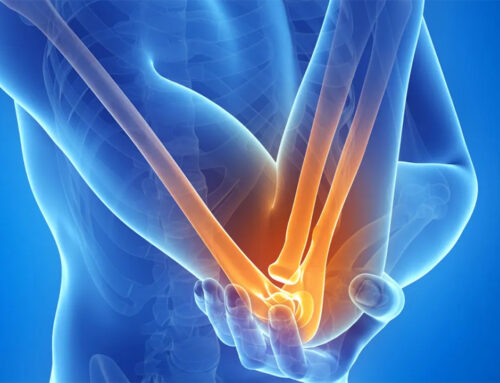We are living in a world of contradictions. We know with ever increasing certainty that gaining excessive weight leads to a greater risk of a lifetime of disability, if not earlier death. Yet, we are in the midst of an obesity epidemic. We all know or should know that obesity is associated with numerous diseases such as diabetes, heart disease, or an elevated cholesterol level, and all their ill consequences. But I am an orthopedic surgeon, a musculoskeletal specialist, and we need to talk about the orthopedic consequences of being overweight. And there are many.
First of all, people, like all other creatures around us, are burdened with the chains of gravity. The more we weigh, the more the bones of our hips and knees get squeezed and scream out to us. With time, these greater forces across our knees and hips lead to faster and more widespread arthritis. With arthritis comes pain, weakness, stiffness, and decreased motion. As orthopedists, we have gotten great at joint replacements, swopping old, creaky joints with new ones made of space age metallic alloys and high-density plastics. Yet we haven’t toppled Mother Nature from her throne. Our artificial joints, at first look, work well and follow our commands, but for just so long. Like all other things we create, they grow old and wear out. Because of this certainty, we are now performing more and more repeat or revision total joint replacements than ever before. Our hope of one and done joint surgery has not matched the reality that you are likely to see the inside of an operating room more than once for your worn-out hips or knees.
As much as this sounds like we are in a hopeless situation with our aging joints, it is not entirely true. With proper weight control, we can significantly lower the risk of a loose implant or fractured artificial joint. We can slow down the wearing of these joints and reduce the risk of them getting infected. As these artificial joints wear, they shed microscopic fragments of metal and plastic, called debris, into the surrounding tissues and even into the bloodstream. In turn, this can wreak havoc on one’s ability to fight disease or inflammation. With proper care, we can help our joints help us. We can coax them to take that longer walk down your favorite street, spend more time fishing on the dock, hoping to catch the one that got away last time, or enjoy that one more dance. But like with a ship, the success of the voyage is not just the seaworthiness of the vessel, it is the knowledge and pursuit of right decisions by the captain. You are each the captain of your incredibly complex machine and all of you have the power to guide it to a likely long life.
Even more important, though, than avoiding a redo artificial joint operation is having the opportunity to avoid the total joint in the first place. The less you weigh, the less stress you place on your joints. The surface of your joints, the articular cartilage, stays healthy longer and, as a result, stays smoother and more glistening longer, with less friction at the joint than two pieces of ice sliding on each other. But with added weight, the joint surfaces get pitted and fractured; they start to crumble. With this happening, the lining of the joint, the synovium, gets pricked by millions of these loose debris particles with each prick causing more inflammation. Eventually, the damage adds up; pain starts, and joint stiffen. You begin to lose your strength and endurance and you begin to lose your stability. Your joints become decrepit like a fallen log in the woods, crumbling with the slightest touch.
Hopefully, the reality of this has grabbed your attention and started you thinking about your ability to add some quality to your life in your later years. Who doesn’t want to stay on a job they are proud of a little longer or get down on one’s knees to playing with grandchildren?
Yet, there is even another reason to be aware of obesity. Bioethics specialists, those doctors dealing with the ethics of medicine, are figuring out where our health dollars should be spent, especially with our diminishing resources during this COVID pandemic. Will the monies go to the grandma watching her weight, exercising, and “doing the right thing” or to the person who is a regular patron of fast food, and who exercises too little. Today, there are more and more doctors voicing the opinions that grossly overweight people should not even be allowed to get a joint replacement surgery because of the increased risks of complications, if not outright surgical failure. As it is, the grossly overweight are the source of spending a greatly disproportionate amount of health dollars for care of their postoperative complications as well as their potential long-term disabilities. Worse yet, no amount of patient pain or suffering on the part of these very obese, will change these doctors’ opinions. In the very near future, it may be that doors are slammed in your face and medical options taken away from you until you conform with accepted weight guidelines.
All this is going on in the midst of yet another debate over the basis behind our worsening obesity problem. Is it just that we are drinking too many sugary, high-calorie drinks and we should be taxed to force healthier choices on us or is the problem too few grocery stores with healthier foods available, not enough clean water to drink, such as what happened in Michigan, or not enough safe areas providing recreation and an opportunity to pursue physical activity? Many people in very powerful positions are planning your future and you need to recognize that you can take back some control of your future health and the future health options you have with present day decisions, focusing on a better diet and more exercise.
As our economic inflation worsens, our healthcare system will also become progressively more bloated. Be aware, though, that any belt tightening will likely affect you significantly before it affects our healthcare system.
Schedule appointment
About Dr. Purcell
Dr. Purcell specializes in orthopedic surgery as well as hand/upper extremity surgery. He has a particular interest in utilizing minimally invasive procedures for his patients. Dr. Purcell was one of the first orthopedists to popularize the endoscopic surgical technique for treating carpal tunnel syndrome surgery, which leads to a faster healing time. He furthered the field of orthopedic surgery with both local and national lectures and presentations, helping colleagues gain insight and knowledge to improve patient care and outcome. His other areas of interest include biological regeneration/rejuvenation of joints, arthritis, tendinitis, nerve compression, repetitive stress disorders and trauma.





